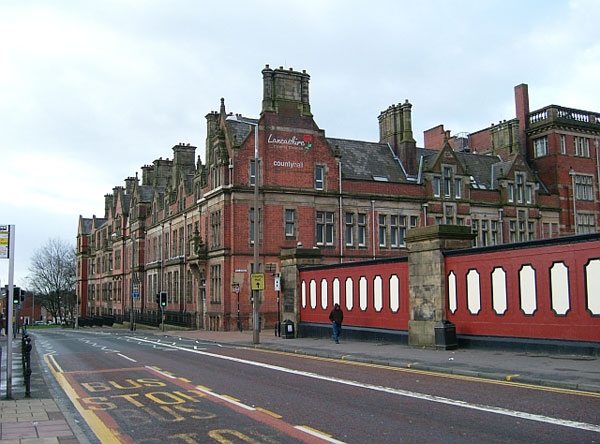
February 8, 2018; Powys County Times and The Independent
Not too many NPQ readers, we suspect, are familiar with the city of Preston. Located in Lancashire and roughly a 30-minute drive to the north-northeast of Liverpool, with an estimated population of 141,000, Preston might seem like an unlikely place for a new economic model to emerge. But the Labour Party, Great Britain’s leading opposition party, has increasingly been promoting the “Preston Model” as its preferred economic policy approach should Labour prevail in the nation’s next election.
Among the key achievements of this economic model in Preston to date have been the following:
- Becoming the first Living Wage employer in the North of England
- Setting up a credit union to compete with payday loan companies
- Persuading six large local public bodies known as “anchor institutions” to commit to buying goods or services locally wherever possible
- Helping to set up worker co-operatives to provide goods and services to public bodies
According to a UK nonprofit organization, the Centre for Local Economic Strategies (CLES), in the four years between 2012–2013 and 2016–2017, Preston was able to increase local procurement from 5 percent to 18.2 percent through its anchor institution strategy, which aimed to boost local procurement from area hospitals, universities, and other public authorities. This strategy increased the economic activity of Preston-based organizations by nearly £75 million (about US $104 million at current exchange rates).
In the broader multi-city community of Lancashire, local regional spending increased from 39 percent to 79.2 percent of procurement during the same time period, a nearly £200 million (about US $278 million) increase. The net impact of this shift in Lancashire has been to support an additional 1,600 jobs “by using…institutions and local government contracts to keep money in the local economy,” the Powys County Times reports.
Sign up for our free newsletters
Subscribe to NPQ's newsletters to have our top stories delivered directly to your inbox.
By signing up, you agree to our privacy policy and terms of use, and to receive messages from NPQ and our partners.
In 2016, CLES began to also implement the model developed in Preston in Birmingham, Britain’s second largest city and home to over 1.1 million people.
Yesterday, John McDonnell, Labour shadow chancellor [treasury secretary] took another step to solidify Labour’s support of the Preston Model, announcing in Preston the creation of a “Community Wealth Building Unit” that will bring “together councilors [city council representatives], unions, think tanks and experts to offer advice to Labour councils” on policy.
In many respects, the Preston model is similar in design to what has been variably called community wealth building, solidarity economy, or new economy in the US, as NPQ profiled last month. Of course, except for slight echoes in the 2016 Democratic Party presidential primary, discussion of community-based economic development concepts has not risen to the mainstream of national politics in the US. By contrast, in Great Britain now it has.
Out of government since 2010, Labour appears to be on the rise. In 2017, Labour, led by Jeremy Corbyn, while failing to prevail, shocked many mainstream British pundits and made major gains, and caused the Conservative Party to lose its majority. The Conservatives now must rely on Northern Ireland’s unionist party to maintain their government. The government’s minority status also increases the chance that, should the accord between the Conservatives and the Northern Ireland unionists falter for some reason, early elections could be triggered. If this were to happen, Labour’s positions might be tested electorally in the not-so-distant future.—Steve Dubb











